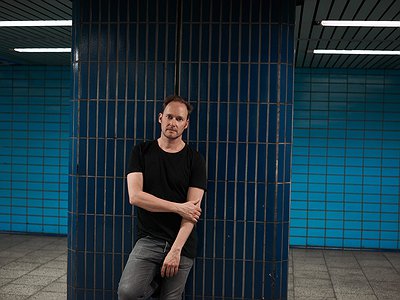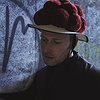Can you describe your state of mind during a DJ set? What supports this ideal state of mind and what are distractions? Are there strategies to enter into this state more easily?
The right amount of alcohol definitely helps me to get into the right mood. I prefer wine or bubbles to hard liquor. It makes me a little tipsy, not drunk. I go into deep concentration when I'm playing. Total tunnel vision on music and crowd, nothing else. I don't mind someone coming by to say hello or dance with me for a moment. But I can't stand being forced into a longer conversation. There's a time for everything.
What are some of the considerations that go into deciding which track to play next? What makes two tracks a good fit? How far do you tend to plan ahead during a set?
Intuition and spontaneity are key to my sets. I mostly plan 3-4 tracks ahead but I'd always keep an open mind for last minute changes.
Would you say you see DJing as improvisation? As composition in the moment? Or as something entirely different from these terms?
I can live with both descriptions.
How do playing music at home and presenting it in the club compare and relate? What can be achieved through them, respectively, and what do you personally draw from both?
At home, I'm using music as a mood conditioner. When I feel down I'd put on a specific record that I know will lift my spirits. When I'm hyperventilating I know what kind of music will calm me down. However, democracy dictates that we also listen to current chart toppers or Cologne's Carnival hits because my kids love them so. I rarely put on a techno record while playing Parcheesi with my kids. When I'm DJing I enjoy being in total control. At home I'm much less of a dictator. I like to discover music with my family.
How would you describe the relationship between your choices and goals as a DJ and the expectations, desires and feedback of the audience? How does this relationship manifest itself during a performance and how do you concretely tap into it?
DJing is all about about trust. You have to gain the trust of your audience. Once the trust is established, you can take them anywhere. Never betray the dancers in front of you, never underestimate their curiosity and intelligence. Be grateful for their trust.
Especially thanks to the storage facilities of digital media, DJ sets could potentially go on forever. Other than closing time, what marks the end of a DJ performance for you? What are the most satisfying conclusions to a set?
Playing long or very long sets is certainly my favorite discipline. The usual two hour slots tend to leave me unsatisfied. In fact, they're stressing the hell out of me. There's so much amazing music I'd like to share that don't fit in a 2h prime time set. At the end of a 8h+ set I find my catharsis. I'm loving this feeling of total physical and mental exhaustion, taking the final drink together with staff and friends, having conquered another night and then step out into the morning sunlight. It still makes me smile when I see others on their way to work when I'm on my way to bed. Then I'm like "I've got the best freaking job in the world!"
Art can be a purpose in its own right, but it can also directly feed back into everyday life, take on a social and political role and lead to more engagement. Can you describe your approach to art and being an artist?
Honestly, it took me a long time to accept that I'm called an artist. When I started out, DJs were these shady guys that played other people's music and got payed little more than the bouncer, a nocturnal service provider. I always believed that it's a very creative thing I'm doing but it has got zero to do with what's on display at a museum. DJing is so much more interactive than painting pictures. A joyful club night can be a piece of art, maybe more in a Fluxus sense. It's not created by a single person. A night is shaped by all the producers that unconsciously contributed their music, the crowd, the staff, the light operator - the DJ operates like a film director or a conductor - he/she shouldn't take all the praise.



